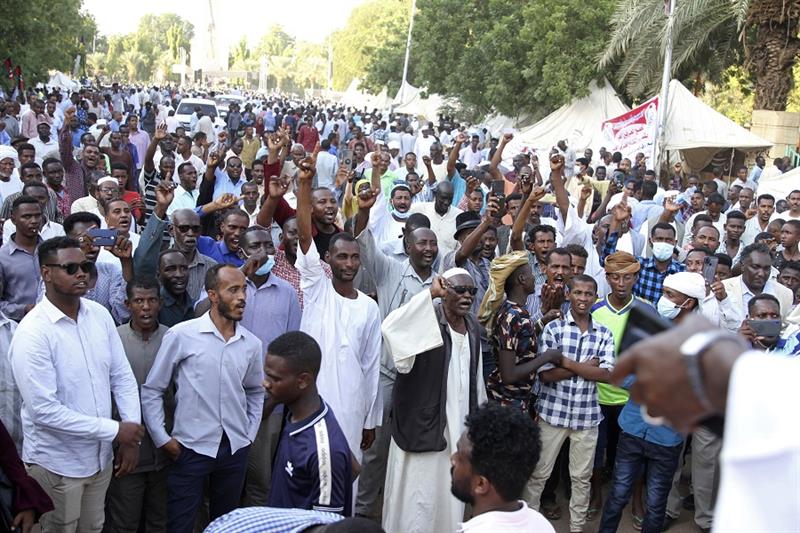![]() Sudan – Hundreds of pro-military Sudanese protestors demonstrated for a second day on Sunday, exacerbating what Prime Minister Abdalla Hamdok termed the country’s precarious transition’s “biggest and most serious crisis.” Protesters in Khartoum are calling for Sudan’s post-dictatorship interim government to be disbanded, claiming that it has “failed” them politically and economically.
Sudan – Hundreds of pro-military Sudanese protestors demonstrated for a second day on Sunday, exacerbating what Prime Minister Abdalla Hamdok termed the country’s precarious transition’s “biggest and most serious crisis.” Protesters in Khartoum are calling for Sudan’s post-dictatorship interim government to be disbanded, claiming that it has “failed” them politically and economically.
“The sit-in will continue until the government is gone,” one of the organizers, Ali Askouri, told AFP. He said, “We have officially asked the Sovereign Council,” the military-civilian organization responsible for the transition, “to no longer cooperate with this government. The protests occur as Sudanese politics is torn apart by conflicts among the factions guiding the country through the rocky transition from Omar al-three Bashir’s decades of iron-fisted control.
In April 2019, the army deposed Bashir in the face of huge protests led by the Forces for Freedom and Change (FFC), a civilian alliance that became a significant component of the transition. A dissident element of the FFC organized the current demonstrations, which were unmolested by security authorities. Critics claim that members of the military and security forces are leading the rallies, which also include counter-revolutionary sympathizers from the previous administration. Protesters have gathered outside the presidential palace, where the interim government is based, chanting “One army, one people” and demanding “a military government.”
Related Posts
Poverty has afflicted Sudan since the departure of President Omar al-Bashir, who is wanted by the International Criminal Court (ICC) for genocide, war crimes, and crimes against humanity in Darfur, where a conflict that began in 2003 claimed the lives of 300,000 people. Sudan was removed from the US’s list of state sponsors of terrorism in December 2020, removing a key roadblock to much-needed aid and investment.
However, public support for the transitional government has weakened in recent months as a result of a slew of IMF-backed economic changes, which include lowering fuel subsidies and allowing the Sudanese pound to float on its own. The latest developments follow the government’s announcement on September 21 that it had foiled a coup attempt blamed on military officers and citizens close to Bashir’s administration. Hamdok said on Friday that the transition is in the midst of its “biggest and most severe” crisis.
On Saturday, Hamdok’s Finance Minister Jibril Ibrahim addressed the gathering, demanding the government’s resignation. The FFC’s mainstream group claimed the crisis was “planned by some parties to destroy revolutionary forces… clearing the door for remnants of the previous system to return.” The pro-military sit-in was described by Jaafar Hassan, a spokesman for the FFC, as “an incident in the scenario of a coup d’etat.”
“To stop the route to democracy,” he told AFP, “since the participants in this sit-in are supporters of the former government and foreign parties whose interests have been impacted by the revolution.” The protest raises tensions ahead of a counter-demonstration scheduled for Thursday by the opposing side, which will demand a complete transfer of power to civilians. According to Hassan, the organizers of the FFC want “a million-person demonstration to demonstrate the world the Sudanese people’s position.”

